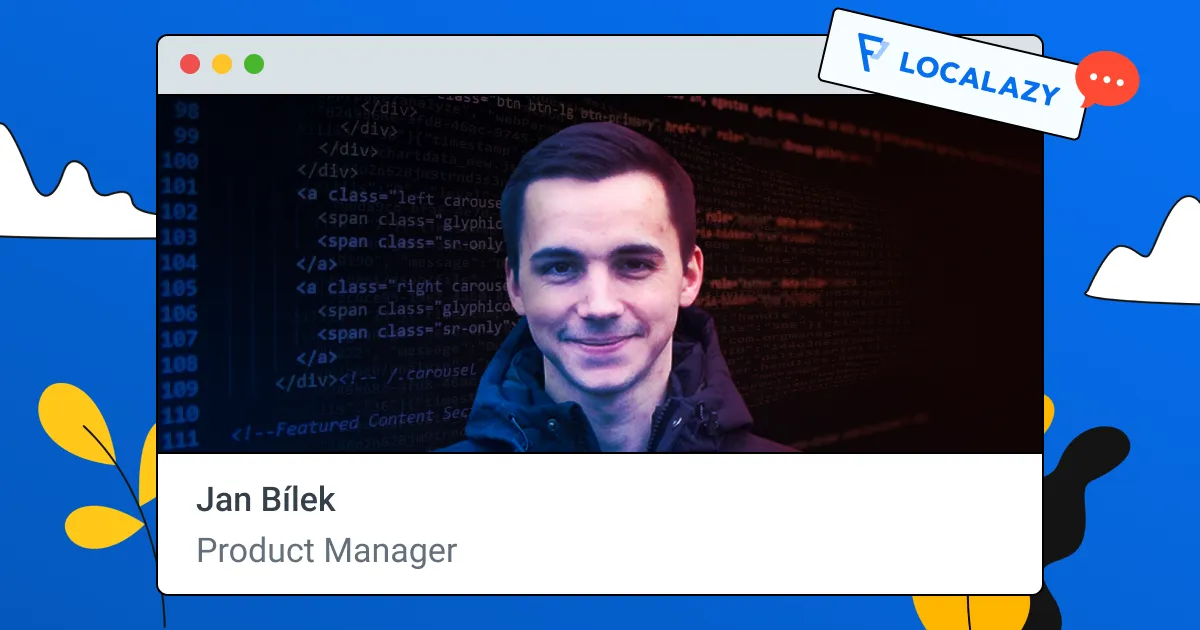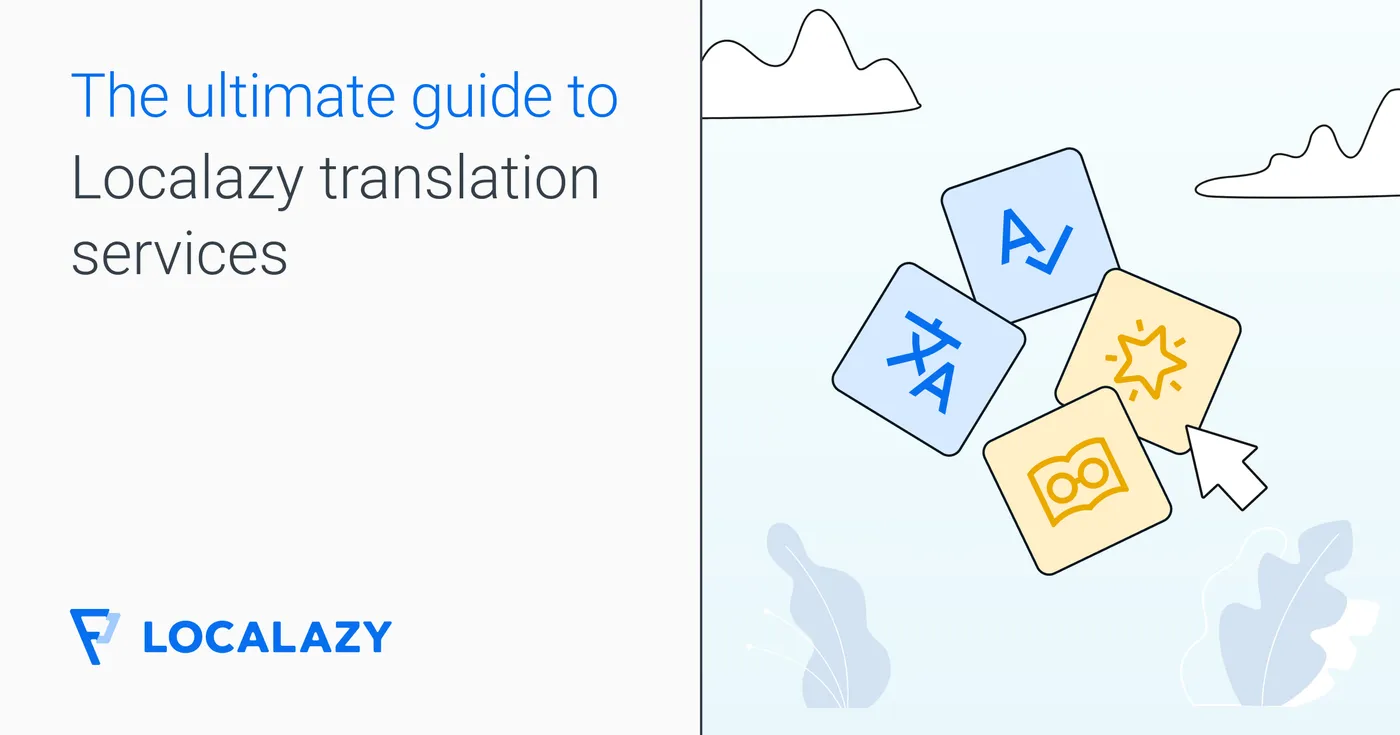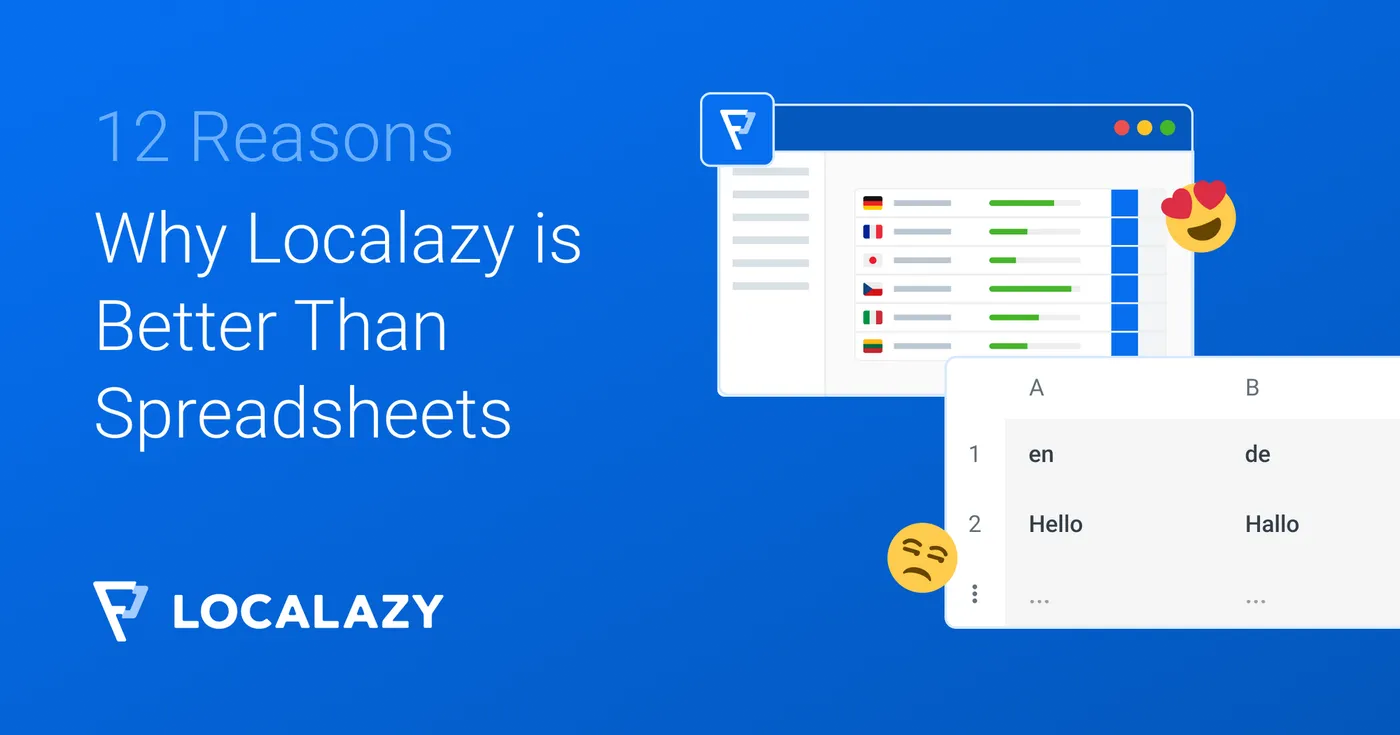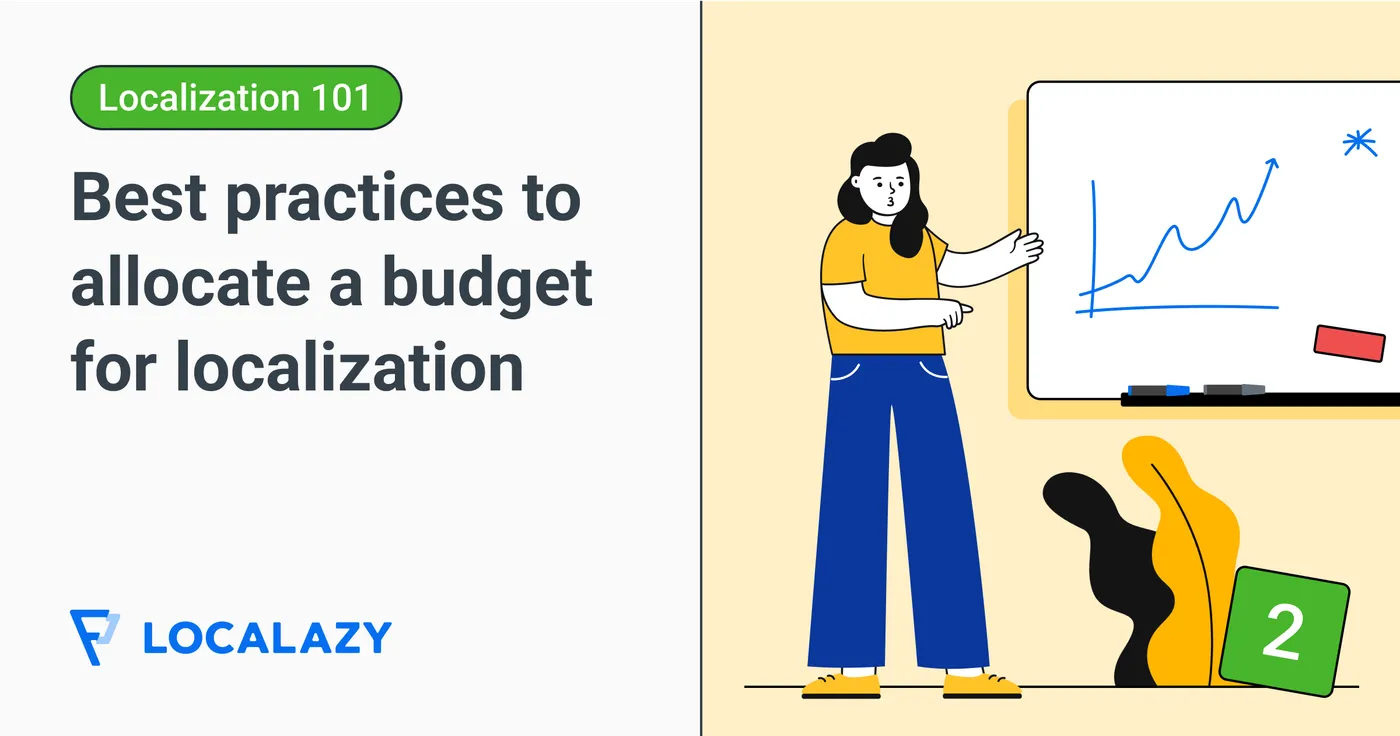Welcome to the first installment of our new "Meet The Localazy Team" series! 🚀
Have you ever wondered what our work routine at Localazy looks like? Would you like to get to know all the people behind the avatars you regularly see on the blog and in the support chats? Say no more: we are happy to introduce you to our new Meet Our Team series, where we'll interview every member of our tight-knit eight-person remote core team based in the Czech Republic and Poland.
To kick off with a bang, we've sat down with Jan Bílek, Localazy's product wizard. 🧙♂️ Jan has been with us since the beginning - he was one of the architects of our localization solution back in 2020. Before taking on the Product Manager role at Localazy, he worked as a frontend developer and consultant for other software companies like Runecast Solutions, Avast Software, and AVG.
Jan is 29 and lives in Katowice (PL), although he's originally from Czechia. He's a sports fanatic, a polyglot, and an excellent trend forecaster. We're off to a great start! Care to join?

🙋♂️ Getting to know Jan 🔗
Hey, Jan! Happy to have you as our first team guest. 😊 What's your role in Localazy, and what are your primary responsibilities?
Hi! 👋 My role in the team would be best described as Product Manager, but in a small team like ours, everyone sometimes needs to deal with other stuff that wouldn’t exactly fit their role's typical description. My primary responsibility is the product. I ensure that everyone in the team is aligned around our goals and priorities, and I make sure that we work towards a well-defined strategy. I talk to customers often, listen to their feedback, and gather and analyze insights. I explore what’s the next most valuable thing we should focus on. I also care about our processes and strive to support the team in working and communicating effectively.
That's a huge role - and a very important one! Can you tell us a little bit about your prior experience and education?
I have a technical background. I studied informatics and telecommunication and, afterward, computer science. After university, I worked as a developer 💻 for a couple of years. Then I started freelancing and eventually began building a tiny agency with my friends. That’s how we later met our CEO, Vašek, and our team was quickly transformed into the core product team of Localazy. I never knew exactly what I really wanted to do until my generalist nature and knowing a little bit about everything proved to be super helpful for owning a product.
What do you like the most about your job at Localazy?
It’s definitely the team. Much has been said about empowered teams lately, but these guys are really something else. They’re simply the best people I’ve ever worked with. No problem is too big for them! 💪 Everyone has this strong drive and will to push things forward. Thanks to them, every day is unique, and there’s always something new to learn or improve. Then, when you look back to a year, a month, or even a week ago, you can always see the immense progress we’re making as a company together.
Who are your main professional inspirations or role models, and why?
Countless people out there do a fantastic job at pushing the whole definition of the PM role forward. It would also include many big names who are currently defining the industry, like Melissa Peri, Teresa Torres, or Marty Cagan.
However, if I had to pinpoint just two, it would be John Cutler and Lenny Rachitsky because they’re incredibly relatable these days. Also, a special mention goes to Henry Latham, as he literally launched me in the right direction early this year.
"I have a technical background. I never knew exactly what I really wanted to do until my generalist nature and knowing a little bit of everything proved to be super useful for owning a product"
What are your hobbies and interests?
I do lots of sports and usually train a couple of days a week. I love swimming, running, and mountain biking. On my days off, I also try to exercise at home. 🤸♂️
Plus, I love cooking. I cook almost every day and try to get better at it. Apart from that, I read a lot and occasionally take photos purely for fun. Most of these activities are irreplaceable for me, allowing me to recharge and organize my thoughts.
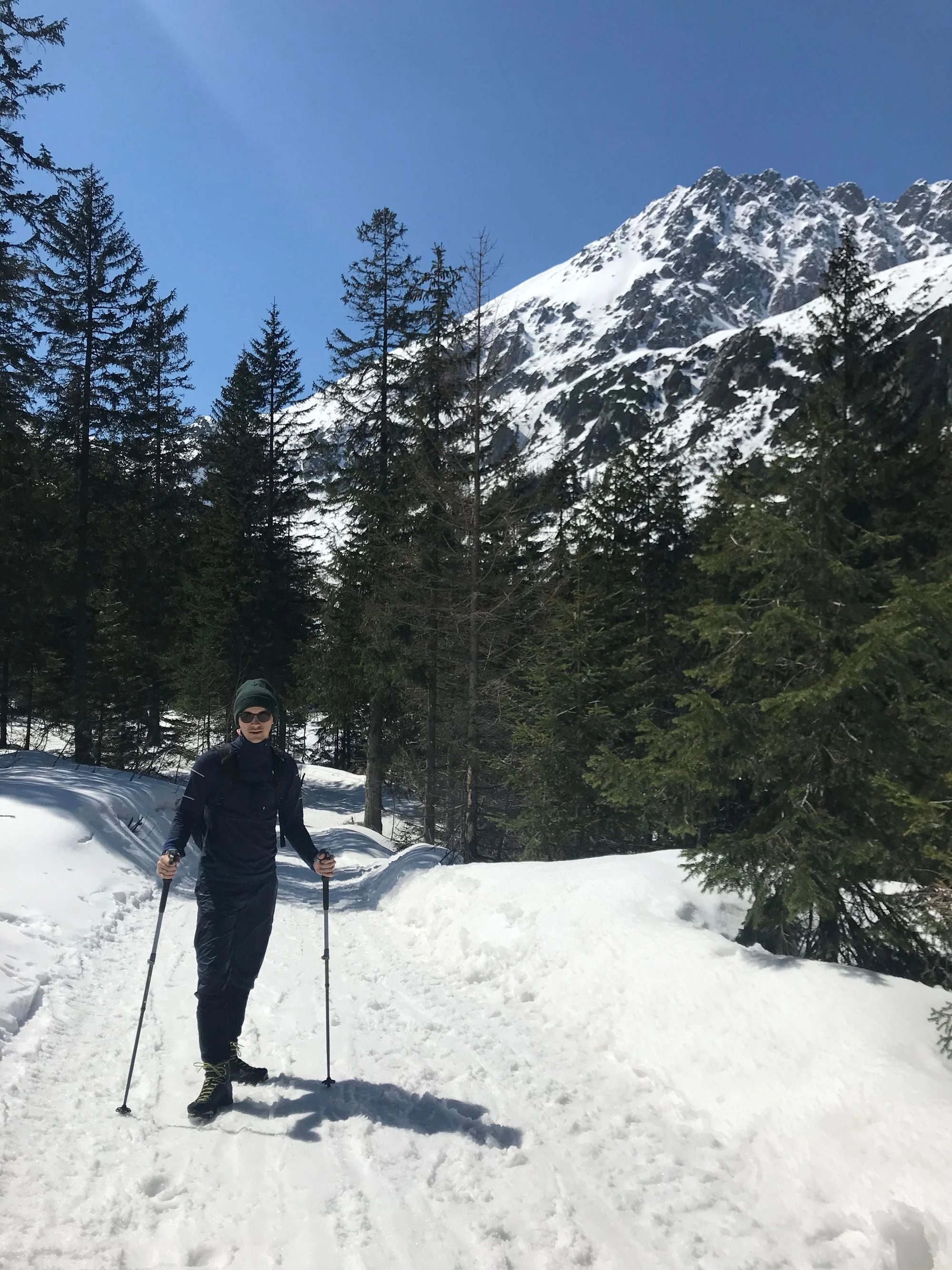
💪 Challenges as a Product Manager 🔗
What is the biggest challenge ahead of you now as a PM?
From a business perspective, the challenge could be turned into a question: "How to turn a growing startup into a strong and healthy business?" One of the goals ahead is to improve communication clarity and better guide the conversations where I need them to be product-wise.
How do you find direction?
I use bullet journaling for goal setting. 📖 It’s an irreplaceable tool for me when seeking clarity.
How has the company and the product evolved since you started? What is your proudest achievement as a product manager?
We started from the bottom: four people with an idea and almost no experience. We just wanted to solve localization hassles for Android developers. Now our core team is double in size; we support more than 70 integrations, we are one of the pioneers in Continuous Localization Services, and we currently have a fully-featured platform competing with the biggest players who have been on the market for over a decade. And all this happened in about three years of quite uncertain times for the global economy.
That's a noteworthy achievement indeed, but success is not always the norm in the startup environment. How do you manage failure and unmet expectations?
As a startup, we’re overloaded with ideas. 💬 Naturally, not all of them are going to work. Some ideas must fail many times until we find the one way that works perfectly. I believe that failure is the best driver for progress. It’s crucial not to dismiss even the craziest ideas immediately but rather listen and evaluate them properly. This way, anyone in the company can come up with the next big thing.
"Failure is the best driver for progress. It’s crucial to evaluate even the craziest ideas, so that we allow anyone to come up with the next big thing"
When something fails unexpectedly, it’s important to refrain from blaming others because it’s rarely an individual’s fault. We try to find the real reason it failed and learn from it. This helps us make better decisions in the future. Failure is inevitable in an environment like ours, but you should fail fast and eliminate the risks standing in the way.
What’s the most challenging thing about creating and promoting a product amidst all the information overload and constant competition?
I’d say it’s getting the positioning right. It’s crucial to come up with clear messaging 📣 that properly delivers our unique value proposition and counters possible objections. It’s also objectively harder to build a business now than it was, for example, ten years ago. Big spenders dominate the media channels, and there’s also huge CAC inflation. We must constantly search for alternative ways to get the message to where it should be.
👓 The daily grind 🔗
As a PM, what does your usual workday look like?
My job requires a lot of substantially different activities, including:
- Lots of thinking and focus 🧠
- Talking to users and customers 🤝🏼
- Analyzing data and feedback 📊
- Coordinating team efforts from idea to execution 📋
I basically talk to everyone every day, but I also need to find time to think. I set my morning time aside for the most complicated stuff. I wake up, make myself a coffee ☕, and start with the most important thing I need to achieve that day. I usually consult my bullet journal for this, as it really helps me to figure out what I should focus on doing. I rarely agree to attend meetings in the first half of the day unless they help me solve the problem I have at hand. Thanks to that, I can consistently move forward in the direction I want.
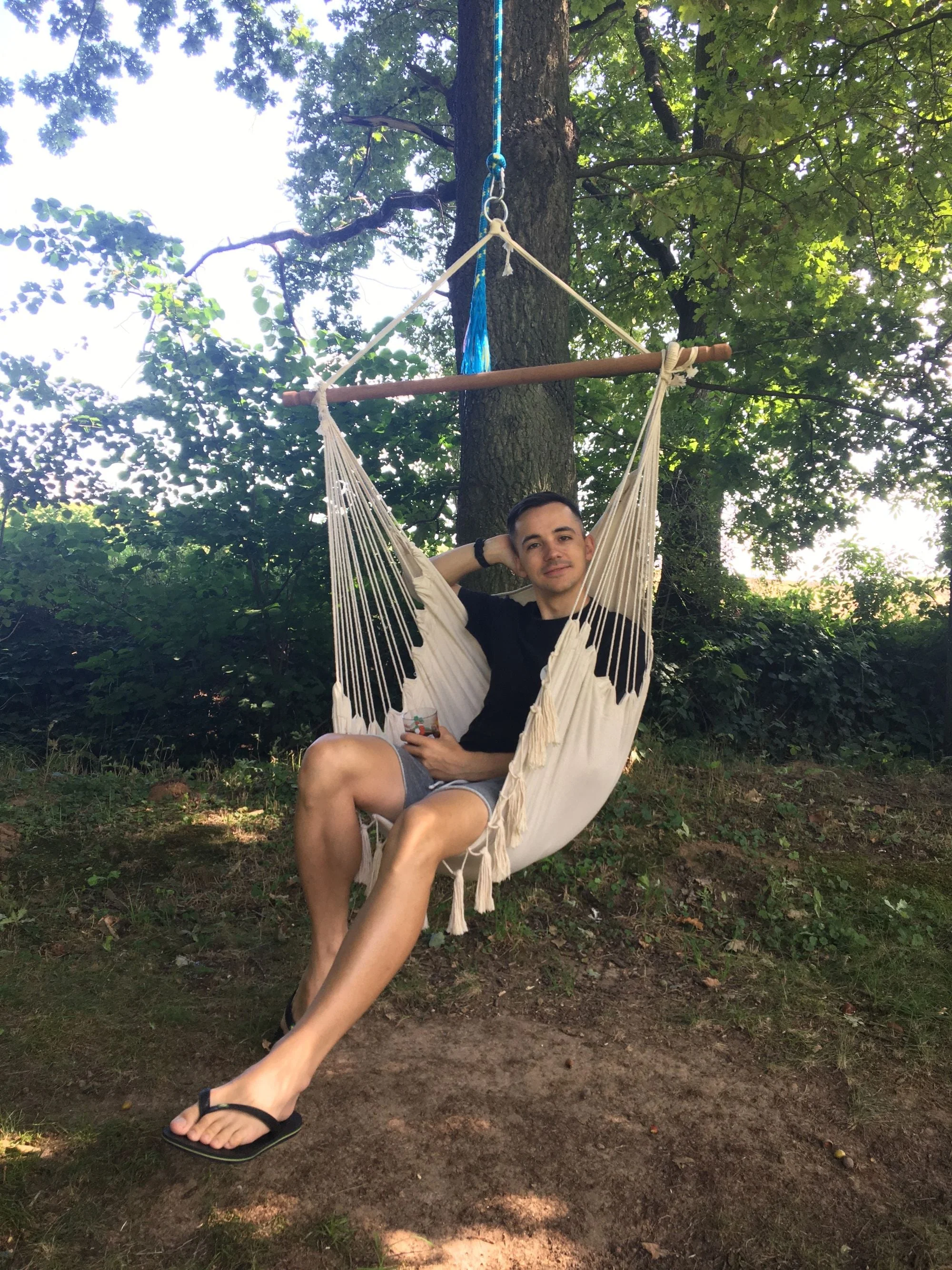
After the morning session, I usually take a longer break for some exercise and lunch. In the afternoon, knowing that I have already worked hard towards the goal, I can happily use the remaining energy for meetings with teammates, talking to customers, and all kinds of other stuff which don’t require long, uninterrupted periods of focus. Usually, I also take advantage of a third session in the evening, when I read books, write some content or study some materials before I go to bed. This really helps to settle my thoughts, which I can leverage to think clearly the following day.
How do ideas come up within the team, and how does the process look?
As I’ve already mentioned, there are always more ideas than one can work with. We have a system to put these on triage. Ideas come from different channels, but the most important for us are those from customers. However, we don’t simply take orders like a waiter in a restaurant: we strive to identify the problems and pain points in our client's workflows and try to come up with our own ideas or evaluate their suggestions. A great tool I’m currently working to implement in my team is Opportunity Solution Trees. They help you to connect business goals with customer pains and solutions.
Another stable source of ideas are our company-wide in-person meetings. We try to hold them at least once a year. It’s an opportunity to talk about the general direction of the company and ways to move forward. All general ideas we discuss are leveraged for the year in strategy decisions, which are used as guidelines to align the entire team.
🏛️ Localization as an industry 🔗
Let's answer the most pressing question. Why is localization so important?
There are so many reasons why localization is essential that I don’t even know where to start. I feel like companies are starting to understand that localization if done right, can incredibly boost their growth. 🌱 They can address users and customers in their native tongue, eventually creating much better long-term relationships. After all, having loyal customers on board has always been the ultimate goal for every business.
This focus on growth through localization radically changes the game in the industry. Translators aren’t just crunching tasks; they work closely with product and marketing teams to serve business needs and create impact in the new, promising language markets.
Have you noticed a difference in how companies approach localization over the last few years?
Yes! Unfortunately, there are still many companies that don’t understand the complexity that lies behind a successful localization strategy and execution. 😕 Many of them still think that they can run their project through automated translations, and they’re done.
"The most important ideas for us are those who come from customers. However, we don’t simply take orders like a waiter in a restaurant: we strive to identify the pain points in their workflows"
What are the main shortfalls for companies that don't use localization services?
Not every company can afford to have an in-house localization team, especially when they’re just starting with localization or don’t simply possess the resources to create and manage another department.
Working with traditional translation agencies (LSPs) is always demanding on resources. Usually, a lot of back and forth is needed; communicating usually takes time, and you need some people to manage the process anyway. It can take weeks before the product's next iteration can be released.
Continuous Localization Services are different. We have tools that can update all required changes automatically. Our professional translators know exactly what to translate, and they complete the average project in a matter of days. Everything can then be automatically deployed to the product, which saves everyone’s time and creates much shorter release cycles.
How has AI impacted the localization industry? Was machine learning always a core feature of Localazy since the beginning?
We live in an age where AI is capable of solving incredibly complex problems yet still fails at tasks that are fairly simple for humans. Localization falls into this category. Even though AI isn’t completely reliable for translation - and it won’t be in the near future - it’s still incredibly helpful to reduce the amount of work translators need to do. It can reduce duplicities, pre-fill translations on best effort basis, or even correct or prevent some mistakes easily overlooked by people.
Companies usually view it as a technology that can save them money. For translators, it’s just another tool in their toolbox that helps them to complete their job more effectively.
Then we have the end consumers. For them, AI localization is an enabler because it basically breaks language barriers. It would be impossible to have most of the content on the net translated by real humans because of its quantity (think product reviews, comments, forums, and news articles...).
As for Localazy, we never advertised as an AI startup, although some functionalities heavily rely on it. Since the beginning, we have been focused mainly on translation management and automation of the whole process. But we utilize 3rd party AI technologies, as creating our own models from scratch takes a lot of time and resources.

What would you consider are the biggest challenges to stand out as a localization startup at the moment?
Getting the appropriate funding level to support the key activities in this highly competitive landscape. 💸 📈 We’re going through challenging times, and, as observed in the whole startup ecosystem, valuations are generally lower, and rounds are smaller. Moreover, investors are often more reluctant to close the rounds. As a result, companies are turning to more self-sustainable business models instead of just burning cash. This, unfortunately, widens the gap between well-established localization companies and emerging startups.
What are some of the hot points to stand out? How did you come up with your unique proposition?
There are many options you can choose to stand out. The most obvious one is a lower price, but from a business standpoint, I don’t believe it’s a good option.
The ultimate differentiator is simply getting the job done better than others. However, this leads you to the question: "What is the job?" Every market or niche has a different job for the companies to be done. Focusing on one narrow market lets us stand out more easily, but a single niche market might not be completely viable for building a healthy and sustainable business.
Other interesting differentiators are usability and convenience. I observe a lot of people who enjoy using simple products because, under the hood, they’re capable of handling some really complex tasks. Product convenience naturally leads me to another point, which is compatibility. Localazy started as a tool compatible with every possible localization format. This also contributed to strengthening the first two propositions. Now, we’re successfully replicating the same proposition with custom plugins and integrations such as the Figma plugin.
Our unique value is evolving over time and leverages all of the principles I’ve described. The industry is growing, and you must keep up with the changes because one unique proposition might not be that unique a year or two later.
Is the startup system in which you operate a collaborative one? Have you partnered with other services - and what was the process like?
From my experience, startups tend to help each other, as they usually share common pains and experiences. We provide localization services, which will always have the potential to add a unique value to every emerging product. Therefore, it’s usually not that hard to find synergy and agree on some sort of partnership.
We recently started working with Fibery.io, but the topic probably calls for a stand-alone article. We also love the support we get from Strapi, as we find it to be mutually beneficial to each other. We’re solving a really painful problem for their clients so they can focus on their product instead of localization issues. We identified the opportunity earlier this year and discussed it with the Strapi team. They were all excited about the idea, so we went ahead and built a plugin for them. 👌
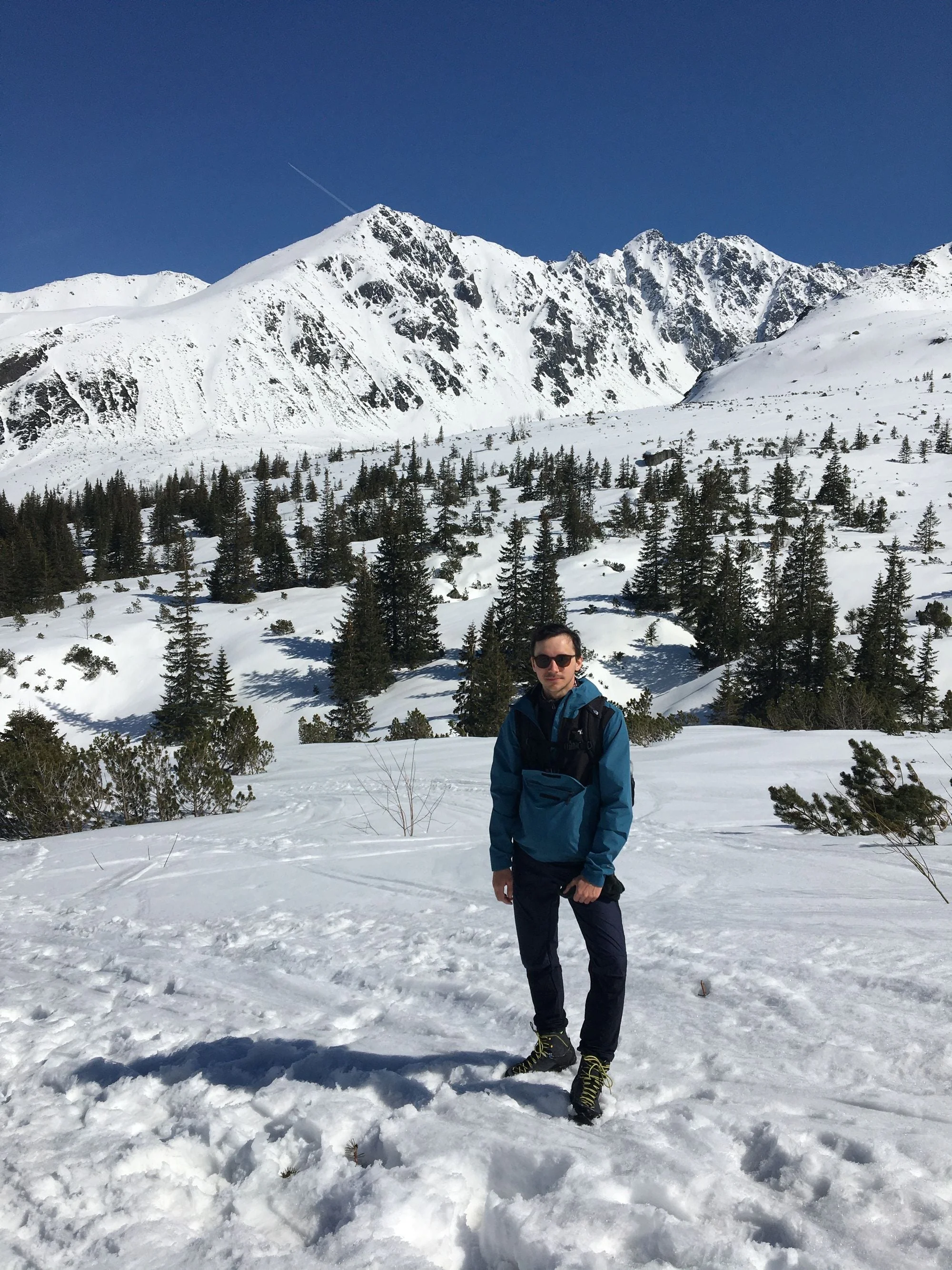
Is there any company within the localization industry or the startup ecosystem that inspires you to go further with your product?
There are so many companies in the industry and the startup ecosystem that it’s hard to point out some names. I get inspiration from various places, not just from within our environment. It’s also from other people and their experiences. You can find parallels to what we do or might be doing in the future, even in a completely different industry. I take the good bits, write everything down, and later consider if something like that might work in our context.
👁️ What the future holds 🔗
Technological innovations come up so fast these days. How do you incorporate the newest AI and machine learning features into Localazy’s products?
As I said earlier, a big part of our product leverages machine translations, which have been one of the areas of enormous tech advancement in recent years. Localization is a large and fractionated industry that is still getting explored by current tech companies and therefore lies unsaturated with ideas. Not every product needs to be AI-powered, though (buzzword alert). The most important thing is putting your customers first and learning about their real problems. You can often find that AI is not an answer to everything and that you can build a useful product more quickly, adding the fancy “AI” capabilities later on.
Is there any new tech feature you’d like to implement shortly?
I always like to talk in terms of problems, not features. Implementing features using new exciting technology doesn’t lead anywhere unless you explore the problem in detail and really solve it. In our team, we always try to place many small bets in the form of product features, and we seek to learn as much as possible from people using them. Then we identify the next focus areas based on our learnings.
One of the bigger challenges we would love to solve next is providing a better context for translations, including communication with other people involved in the project 🗣️ and improving automation capabilities, so people can actually spend less time with our product. Another area of the newest tech we work with is still forming in our hub, but the vision is already big. It should become anyone’s go-to resource for localization data and related questions.
"Not every product needs to be AI-powered. The most important thing is putting your customers first and learning about their real problems"
What do you think “the next big thing” in localization will be?
It’s hard to say cause that’s usually how great entrepreneurs are made. 😁 However, from what I’ve observed, simultaneous translations are an exciting area of localization under heavy research and development. There are already some prototypes and basic working products which can translate into text, but imagine talking to someone on the phone in one language 📲 while your voice is being entirely translated into another language. This could break many existing language barriers and open up the whole world for understanding and collaboration.
Anything else you’d like to add? 😃
Feel free to reach out if you’d like to discuss topics regarding product localization and product management. I’m always open to DMs and collaboration.
Well - you heard Jan! Follow him on LinkedIn and Twitter to chat about localization, SAAS, i18n, and product marketing. And if you want to dig deeper, don't forget to check out his posts, where he discusses the latest developments added to our platform.
